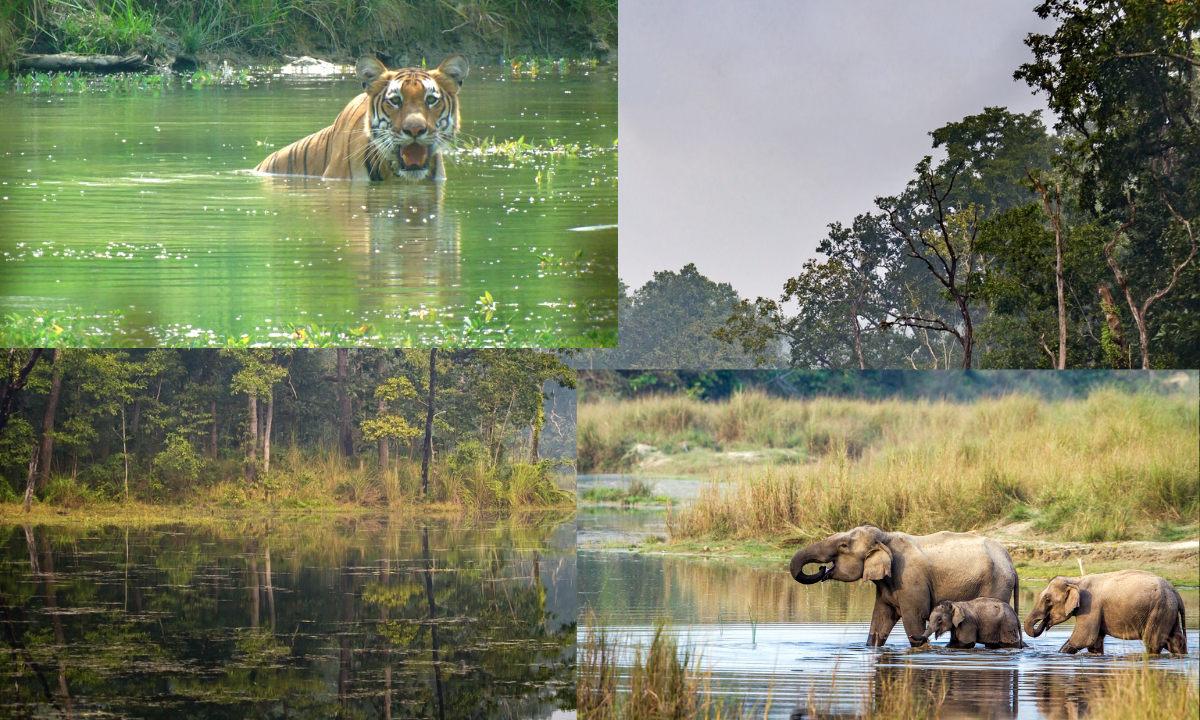Nestled in the subtropical lowlands of southern Nepal, Chitwan National Park stands as a testament to the country’s commitment to biodiversity conservation. Established in 1973, this UNESCO World Heritage Site covers an area of 932 square kilometers and represents one of the most well-preserved ecosystems in the region. Renowned for its rich flora and fauna, Chitwan National Park is a haven for nature enthusiasts and wildlife lovers alike.
Breathtaking Biodiversity:
Chitwan National Park is a treasure trove of biodiversity, encompassing a diverse range of habitats such as dense sal forests, grasslands, and marshes. The park is home to an impressive array of wildlife, including the elusive Bengal tiger, one-horned Indian rhinoceros, Asian elephant, sloth bear, and several species of deer. The park’s avian population is equally impressive, with over 500 species of birds, making it a paradise for birdwatchers.
One-horned Rhinoceros Conservation:F
Chitwan National Park is particularly renowned for its successful conservation efforts regarding the one-horned Indian rhinoceros. Once on the brink of extinction, these magnificent creatures now thrive within the park’s boundaries. The park’s dedicated conservation programs, anti-poaching measures, and habitat preservation have contributed significantly to the increase in the rhinoceros population, showcasing the positive impact of responsible wildlife management.
Experiencing Chitwan:
Visitors to Chitwan National Park can immerse themselves in the beauty of nature through various activities. Jeep safaris and guided nature walks offer a chance to encounter the park’s diverse wildlife in their natural habitats. The Rapti River, flowing through the park, provides an opportunity for thrilling canoe rides, allowing visitors to observe crocodiles, water birds, and other aquatic species. Elephant safaris offer a unique vantage point, enabling tourists to explore the park while mounted on the back of these gentle giants.
Tharu Culture and Hospitality:
Adjacent to Chitwan National Park lies the Tharu community, an indigenous group with a unique culture deeply intertwined with the park’s surroundings. Visitors have the opportunity to engage with the Tharu people, experiencing their traditional dances, music, and art. Tharu homestays and cultural programs provide an authentic glimpse into the local way of life, adding an enriching cultural dimension to the Chitwan experience.
Conservation Challenges and Future Prospects:
While Chitwan National Park has achieved remarkable success in wildlife conservation, it faces ongoing challenges. Human-wildlife conflict, habitat degradation, and climate change pose threats to the delicate balance of this ecosystem. Continued efforts in sustainable tourism, community engagement, and scientific research are essential to safeguard the park’s biodiversity for future generations.





